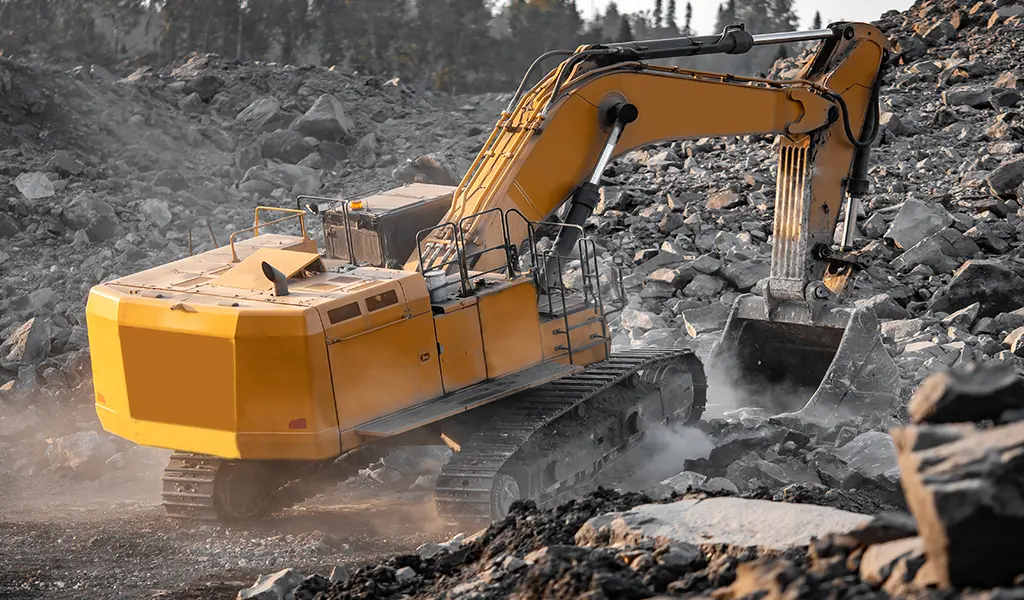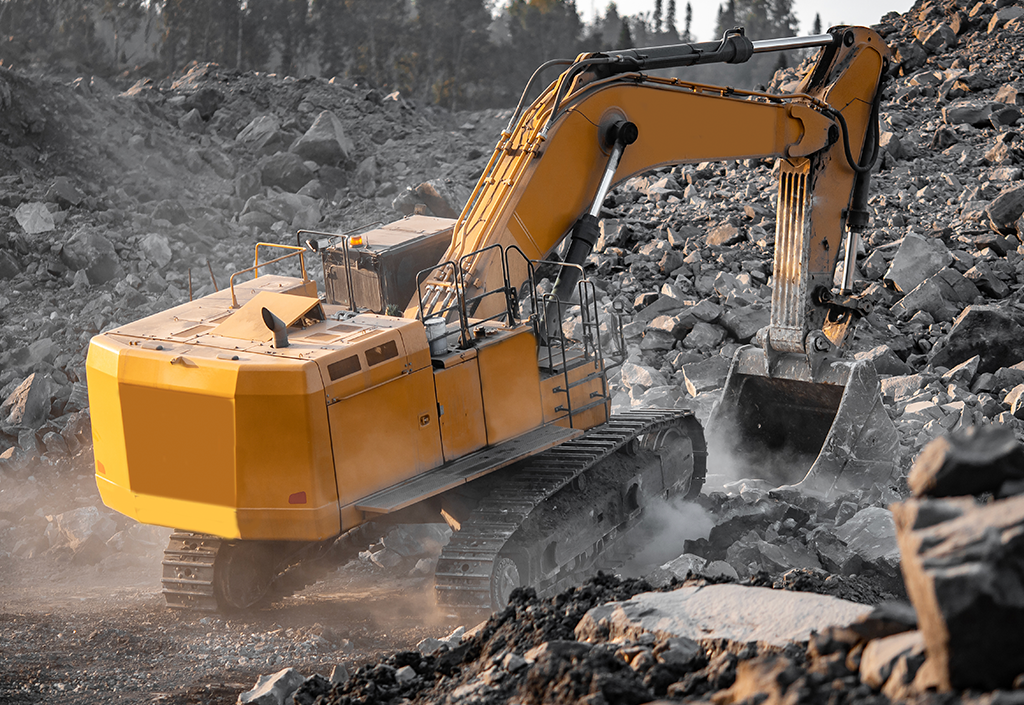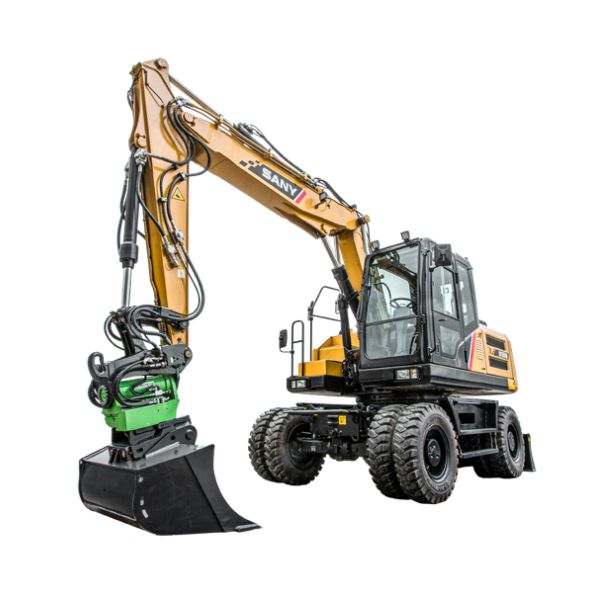When it comes to construction projects, one piece of excavation equipment that consistently proves its worth is the reliable excavator.
The market is flooded with different types of excavators. Still, today, we’re zeroing in on two specific kinds – the tracked and wheeled excavators.
The essential difference between them boils down to their mobility system. While the tracked excavator crawls forward on two continuous tracks, the wheeled counterpart glides on tires.
But what does this mean for you and your construction project? Strap in as we dig deep into the nitty-gritty of these two essential pieces of excavation equipment!
Understanding Tracked Excavators
Let’s start by delving into the world of tracked excavators, a type of excavation equipment with many benefits due to its unique design.
Pros Of Using Tracked Excavators For Construction Projects
- Superior Traction
First and foremost, tracked excavators have a distinctive advantage regarding traction. Thanks to their caterpillar tracks, they’re practically immune to slipping, even when dealing with wet or muddy terrain. This can be a real game changer in tricky working conditions.
Stability On Uneven Terrain
- Secondly, tracked excavators are your best bet if your construction project is on uneven or hilly terrain. Their design provides remarkable stability, reducing the risk of tipping over.
- Lower Ground Pressure
Finally, these powerful machines also exert lower ground pressure than their wheeled counterparts, making them an excellent choice for jobs demanding minimal soil compaction or disturbance.
Cons Of Using Tracked Excavators,
However, it’s not all rainbows and sunshine. Tracked excavators have a few drawbacks, including
- Low Speed.
They typically have a slower speed than wheeled excavators, which might prolong the completion of your project.
- Increased Wear And Tear
In terms of wear and tear, their tracks can deteriorate faster, mainly when frequently used on concrete or other abrasive surfaces. This means potentially higher maintenance costs.
- Difficulty Moving On Roads And Hard Surfaces
Tracked excavators aren’t great for quick outings on roads or hard surfaces. They require transportation using a flatbed truck or trailer, which might be problematic if you often shift your mini excavators between different job sites.
A Detailed Look Into Wheeled Excavators
Now, let’s shift gears and focus on wheeled excavators. As another essential piece of excavation equipment, wheeled excavators bring different strengths and weaknesses. First, let’s explore the benefits of using wheeled excavators:
Pros Of Using Wheeled Excavators For Construction Projects.
First, let’s explore the benefits of using wheeled excavators:
- Mobility and Speed:
When it comes to mobility and speed, wheeled excavators excel. They are swift movers ideal for construction projects spread across large areas or if you frequently need to relocate your mini excavators between job sites.
In many areas, road-legal status enables them to transition from site to site effortlessly, reducing transport costs and downtime.
- Versatility In Different Terrains:
In addition, they’re also quite versatile, handling well on a variety of terrains. Their wheels are well-suited for paved or hard surfaces, even for certain softer ground types.
- Reduced Maintenance:
Compared to their tracked siblings, wheeled excavators often require less frequent maintenance due to the durability of their tires, potentially reducing your overall operational costs.
Cons Of Using Wheeled Excavators
There are a few potential stumbling blocks to consider. These include:
- Limited Stability On Uneven Terrain:
Wheeled excavators may struggle with stability on uneven or sloping terrains due to their higher centre of gravity.
- Less Efficient Digging Force:
Their digging force can also be less efficient than tracked excavators, especially in challenging ground conditions. This could impact productivity when you’re tackling heavy-duty tasks.
- Increased Ground Pressure:
Lastly, they exert more ground pressure. This means they can cause more surface damage or soil compaction, which could be problematic if you work in sensitive areas.
Comparative Analysis: Tracked vs. Wheeled Excavators
Let’s compare these two types of excavation equipment, considering key project parameters. Here’s how tracked and wheeled excavators stack up against each other:
| Project Parameter | Tracked Excavators | Wheeled Excavators |
| Project Size and Duration | Larger, longer projects may benefit from tracked excavators’ superior stability and traction, but their slower speed might affect timelines. | For larger, more spread-out projects, wheeled excavators’ high speed and easy mobility can save precious time and resources. |
| Terrain Conditions | Tracked excavators excel on uneven, hilly, or soft terrain due to their excellent stability and low ground pressure. | On the other hand, wheeled excavators are best suited for work on hard, flat surfaces or a mix of terrains where their mobility shines. |
| Budget and Maintenance Resources | If your project budget allows for potentially higher maintenance costs, tracked excavators could be an option. Their tracks require regular maintenance. | Consider the wheeled excavator if you’re budget-conscious and looking for reduced maintenance. They are easier on the wallet over the long run. |
How To Choose The Right Type Of Excavator?
Deciding which mini excavator to use for your construction project is not a one-size-fits-all situation. It’s all about assessing your specific needs and project parameters.
Evaluate the project’s size and duration, the terrain conditions, and your available budget and maintenance resources. And remember, the best excavation equipment is the one that helps you achieve your goals efficiently, safely, and cost-effectively.
Final Words
Tracked and wheeled excavators offer distinct advantages and disadvantages as pieces of excavation equipment. It’s essential to evaluate your project’s requirements carefully – considering factors like project size, duration, terrain conditions, and budget constraints.
So, take your time, weigh your options, and select the best excavator for your unique project needs.
SEE ALSO: 5 Website Maintenance Hacks To Ensure Uninterrupted Online Success
⚠ Article Disclaimer
The above article is sponsored content any opinions expressed in this article are those of the author and not necessarily reflect the views of CTN News








